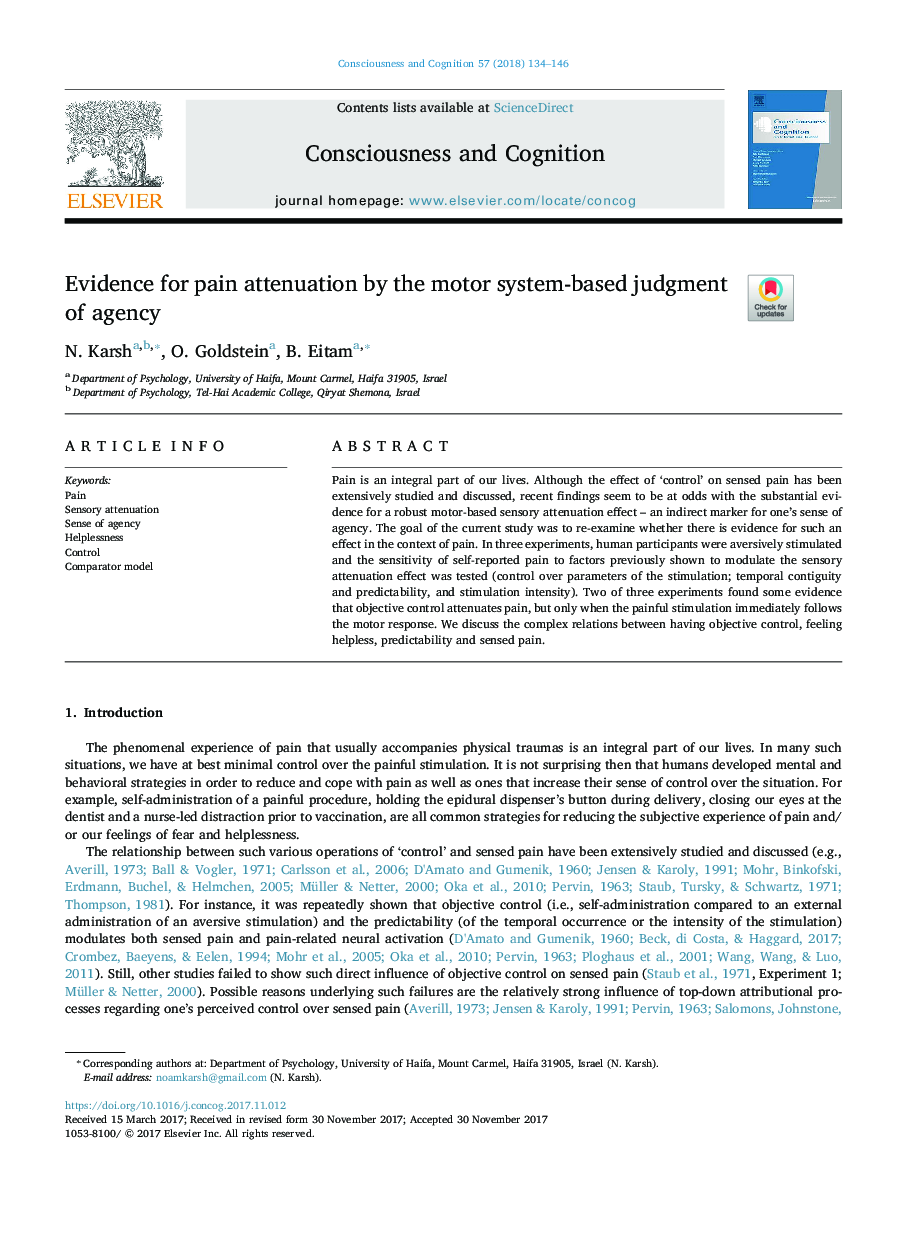| Article ID | Journal | Published Year | Pages | File Type |
|---|---|---|---|---|
| 7288232 | Consciousness and Cognition | 2018 | 13 Pages |
Abstract
Pain is an integral part of our lives. Although the effect of 'control' on sensed pain has been extensively studied and discussed, recent findings seem to be at odds with the substantial evidence for a robust motor-based sensory attenuation effect - an indirect marker for one's sense of agency. The goal of the current study was to re-examine whether there is evidence for such an effect in the context of pain. In three experiments, human participants were aversively stimulated and the sensitivity of self-reported pain to factors previously shown to modulate the sensory attenuation effect was tested (control over parameters of the stimulation; temporal contiguity and predictability, and stimulation intensity). Two of three experiments found some evidence that objective control attenuates pain, but only when the painful stimulation immediately follows the motor response. We discuss the complex relations between having objective control, feeling helpless, predictability and sensed pain.
Related Topics
Life Sciences
Neuroscience
Cognitive Neuroscience
Authors
N. Karsh, O. Goldstein, B. Eitam,
